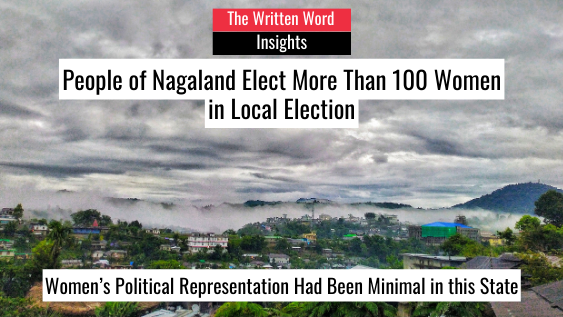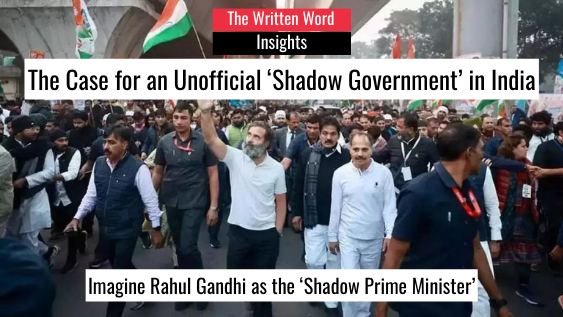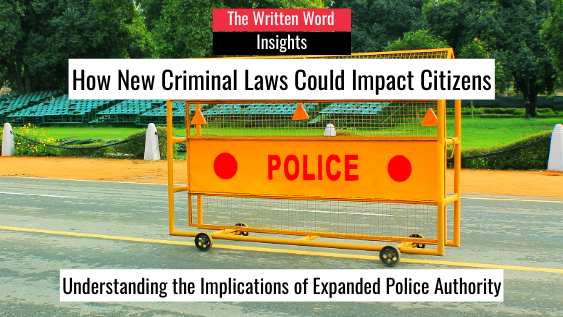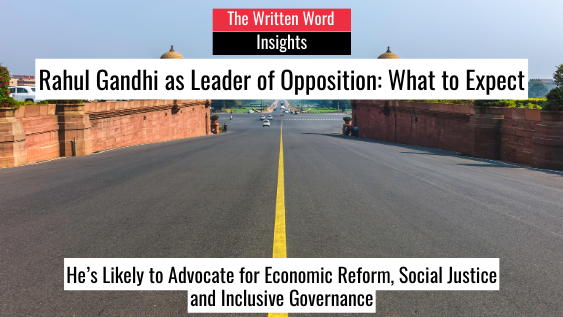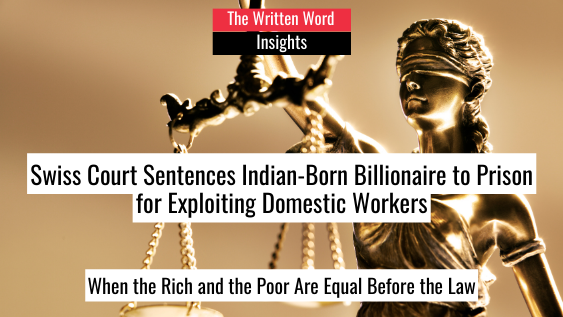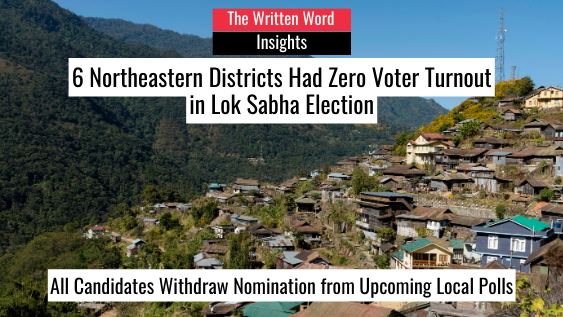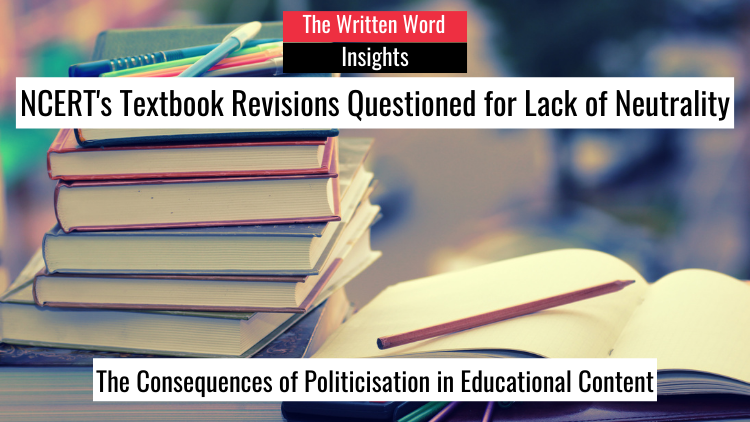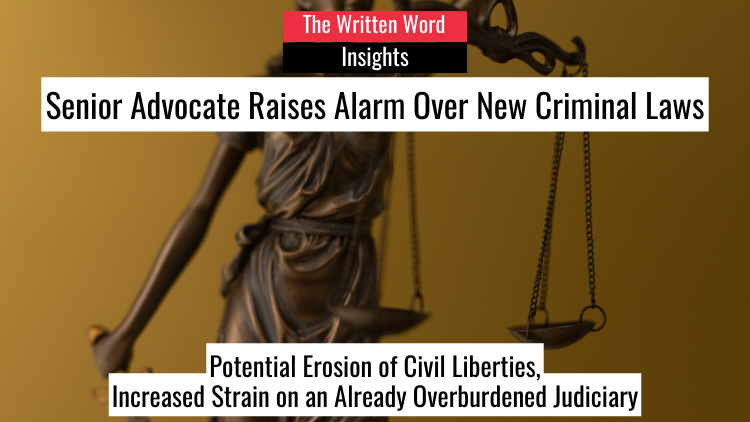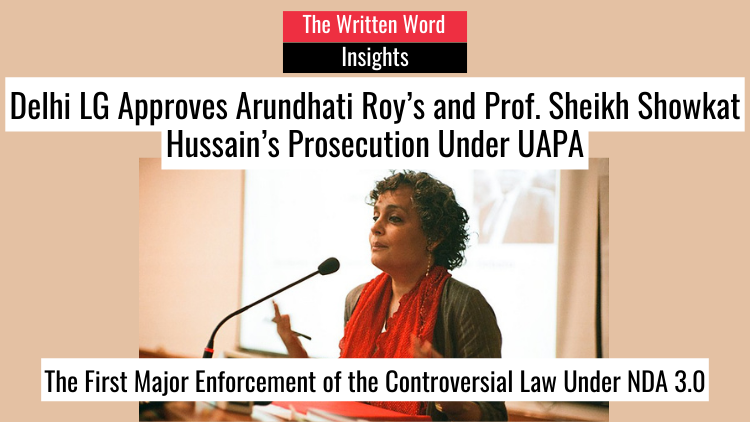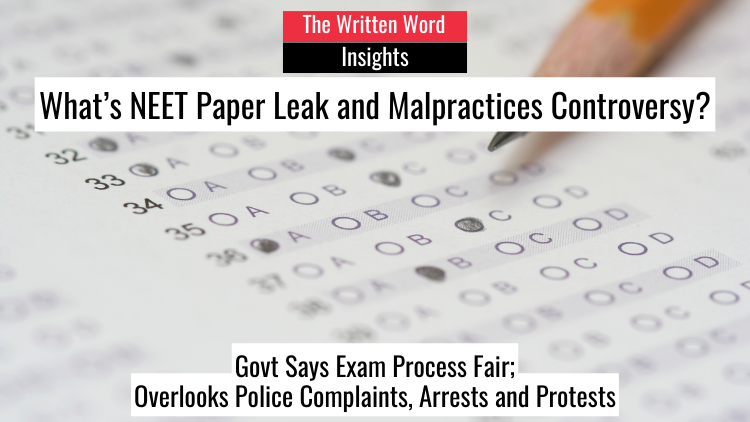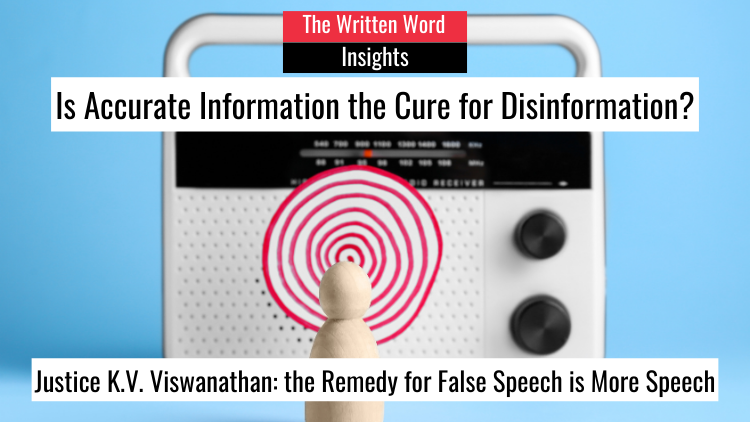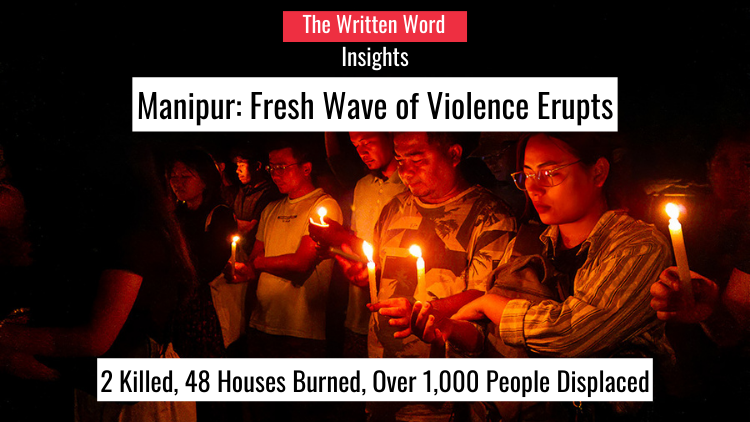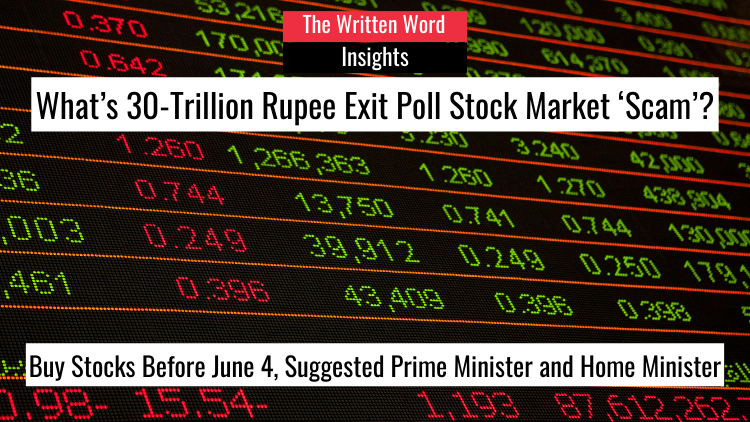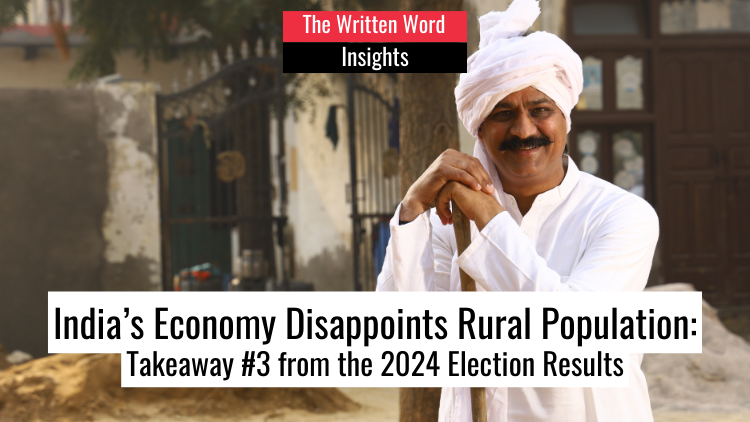NEWS BRIEFINGS JUNE 2024
The people of Nagaland have elected 102 women to its civic bodies, marking a significant milestone in gender representation in local governance. The Urban Local Body (ULB) elections of 2024 saw an enthusiastic participation from female candidates, with women claiming over 37% of the available seats in the polls held on June 26.
The political landscape that has emerged after the 2024 Lok Sabha elections presents a compelling case for the introduction of a de facto “shadow government,” led by Rahul Gandhi, the newly appointed Leader of Opposition. If you are hearing the term “shadow government” for the first time, it refers to a group of politicians who belong to the opposition in a parliament and are part of the “shadow cabinet” with the responsibility to critique the policies and actions of the sitting government.
As India prepares to replace long-standing British-era criminal laws with the newly introduced penal code, criminal procedure code and the law on evidence, which will take effect on July 1, concerns are growing about the potential consequences for ordinary citizens.
Rahul Gandhi, a prominent leader of the Congress party, has been appointed as the Leader of Opposition in the Lok Sabha, with the INDIA alliance having significantly increased its parliamentary seats to 237, up from the 91 seats held by its predecessor, the United Progressive Alliance, in the previous election cycle. What does this shift in the parliamentary landscape mean for us, the citizens?
At the Foxconn flagship iPhone assembly plant in southern India, married female candidates are systematically excluded from employment opportunities, contradicting both Apple’s and Foxconn’s policies which state that workers should not face discrimination based on marital status, suggests an investigation by Reuters.
The Supreme Court has called for clarification from the Delhi Development Authority (DDA) on whether its chairperson, Lieutenant Governor (LG) Vinai Saxena, directed the felling of about 1,100 trees in Delhi’s ridge forest area for a road widening project, a move potentially contravening the court’s standing orders in the case Bindu Kapurea v. Subhasish Panda.
Political activist Umar Khalid, incarcerated in Delhi’s Tihar Jail under the Unlawful Activities (Prevention) Act (UAPA) since 2020 due to allegations of involvement in the Delhi riots, offers a harrowing description of the living conditions during North India’s intense heat wave. Khalid’s account sheds light on the widespread suffering of numerous prisoners, particularly undertrials such as himself, who are legally presumed innocent until proven guilty.
A court in Switzerland has handed down sentences to four members of the Hinduja family, one of Britain’s wealthiest. This case, involving accusations of exploiting Indian staff at their Geneva mansion, reflects the principle that justice does not bow to wealth or status.
Since February 2024, three foreign journalists have allegedly been compelled to leave India following the refusal of their journalist permits, which appears to be a concerning trend for press freedom in the country. French journalist Sébastien Farcis, alongside his colleagues Vanessa Dougnac, also from France, and Avani Dias from Australia, represents the latest in a series of foreign correspondents allegedly facing significant barriers in the country.
Around 4,300 Indian millionaires are expected to migrate out of India in 2024, marking it as the third-highest nation in terms of millionaire exodus this year, according to a report by the investment migration consultancy Henley & Partners. The report identifies the United Arab Emirates as a top destination for these affluent individuals. So, what prompts these millionaires to leave India?
Residents of six districts in a northeast Indian state abstained from voting in the 2024 Lok Sabha election and have announced a boycott of the upcoming local elections scheduled for June 26, marking a profound statement against what is perceived as a long-standing governmental neglect.
Recent calamities and tragedies in India, including the Kanchanjunga Express train accident in West Bengal, show the instinctual response of Indians to help one another in times of disaster. This behaviour stands in stark contrast to the divisive tactics employed by certain political figures along religious and caste lines, demonstrating that inherent unity transcends manufactured divides.
Australian national public media has joined Canada and the United States in expressing serious concerns over India’s alleged covert operations on foreign soil, which they claim threaten their national security. Australian Broadcasting Corporation (ABC) has accused India of espionage and undermining political integrity in Australia.
The revisions in the National Council of Educational Research and Training’s (NCERT) Class 12 political science textbook significantly omit historical events related to Ayodhya, raising questions about the political neutrality of the textbook’s content. The revised textbooks, which were introduced into the market recently, have sparked controversy, particularly regarding the depiction of the Babri Masjid and key political events surrounding the construction of the Ram Janmabhoomi Temple.
As India gears up to enact three sweeping new criminal laws effective July 1, 2024, civil liberties advocate and Supreme Court lawyer Indira Jaising has sounded a significant alarm. Urging a delay in the implementation of these laws, Jaising points out not only potential constitutional infringements but also the risk of increasing the already considerable pressures on the judiciary.
Delhi Lieutenant Governor Vinai Kumar Saxena has authorised the prosecution of Indian author and activist Arundhati Roy and Prof. Sheikh Showkat Hussain under the Unlawful Activities Prevention Act (UAPA) in connection with a 14-year-old police complaint. This marks the first major enforcement of the controversial law under the third term of the Bharatiya Janata Party-led National Democratic Alliance (NDA). This comes 10 days after the national election results which were widely regarded as a mandate for good governance and a verdict against the government’s alleged heavy-handedness.
The National Eligibility cum Entrance Test (NEET) UG (Undergraduate) 2024 exam, an essential pathway for students aspiring to medical careers in India, is currently embroiled in controversy due to widespread allegations of paper leaks and exam malpractices. The issue has sparked national concern, and caused considerable anxiety and stress among 2.3 million students who prepared for the exam.
In a speech, Justice K.V. Viswanathan of the Supreme Court put forth a proposition that a disinformation law similar to that of Singapore might offer a partial solution to the spread of false information in India. Singapore’s law empowers the government to instruct publishers to place correct information alongside false reports, adhering to the notion that the remedy for false speech is more speech. This principle may seem straightforward, but it fails to take into account the intricacies of Indian politics and society.
Manipur is witnessing renewed violence, with the latest escalations being reported from Jiribam district, an area that borders Assam’s Cachar district, after a Meitei farmer’s death was attributed to a Kuki-Zo armed group. Recently, two individuals from the Hmar-Mizo tribal communities, which are part of the larger Zo tribe, were reportedly killed, and 48 houses and a church owned by tribals were destroyed, displacing more than 800 tribal and 220 Meitei residents.
Prime Minister Narendra Modi and Union Home Minister Amit Shah made public statements just before the national elections, hinting at a favourable outcome for the Bharatiya Janata Party (BJP), suggesting that this would positively impact the stock market. On May 13, Shah said, “Buy shares before June 4th.” On May 19, Modi predicted the stock market would “break records” on the counting day.
Some pollsters are attempting to minimize the apparent decline of the ruling Bharatiya Janata Party (BJP) in the 2024 Lok Sabha election results by drawing attention to the party’s vote share, which has decreased by only 0.7% compared to the 2019 election results. However, despite their expertise as psephologists, they are overlooking the fact that gauging a political party’s popularity and success solely by its overall vote share in a first-past-the-post (FPTP) electoral system can indeed be simplistic and misleading.
In a troubling turn of events linked to an August 2020 assault on journalists from The Caravan magazine, Delhi Police have now designated these same journalists as accused in a related criminal case. The journalists – Shahid Tantray, Prabhjit Singh and a female reporter – were attacked by a mob in northeast Delhi, which included communal slurs and threats of murder. The female journalist was also subjected to sexual harassment during the incident.
Two Muslim men were beaten to death by cow vigilantes while transporting buffaloes in Raipur, Chhattisgarh, on June 7, as reported by News18 Hindi. The attack occurred just three days after the announcement of the Lok Sabha election results, which are widely being viewed as a rejection of the use of communal issues in politics.
The mood is sombre among the members and supporters of the Bharatiya Janata Party (BJP) despite their “victory” in the national election. Although they won, the party did not secure enough seats to form a government without relying its coalition. The outcome fell short of their expectations and claims of overwhelming popularity. And the voters who provided a reality check on their actual popularity primarily reside in rural areas, as indicated by the election results. These individuals, who constitute the majority of the Indian populace, were anticipated by the BJP to remain mere spectators to India’s projected economic advancements.
The 2024 election results in India indicate several significant changes in the nation’s political landscape, one notable shift being the steep decline in the influence of Prime Minister Narendra Modi, who has been the only face of the Bharatiya Janata Party (BJP).
The 2024 election results have dealt a significant blow to the Bharatiya Janata Party (BJP), shattering its confidence in its ability to mobilise voters using its Hindutva ideology, which promotes Hindu nationalism and marginalises religious minorities. This shift is reflected in the overall results of the election, particularly in Uttar Pradesh, including Ayodhya, a city central to the party’s Hindutva agenda.
The Chief Election Commissioner (CEC) Rajiv Kumar told Scroll.in that it was the decision of the Election Commission to refrain from taking action against the top two leaders of the Bharatiya Janata Party (BJP) and the Congress party, despite apparent violations of the Model Code of Conduct (MCC). This unprecedented – and unworthy-of-precedence – decision brings to light two major issues that challenge the core principles of our democratic system.
The central government frequently responded with “no data” to parliamentary questions concerning at least 10 vital issues, according to an analysis by IndiaSpend. Between 2015 and 2023, out of 35 key questions regarding health, education and public safety, the government claimed that data was not maintained in 17 instances.
Floods and landslides triggered by Cyclone Remal have claimed nearly 60 lives and affected hundreds of thousands of people in the northeastern states of Mizoram, Assam, Nagaland, Manipur and Meghalaya. As many of these states have regions that are difficult to access and telecommunication can be challenging during disasters, it is likely that the death toll will rise in the coming days.

